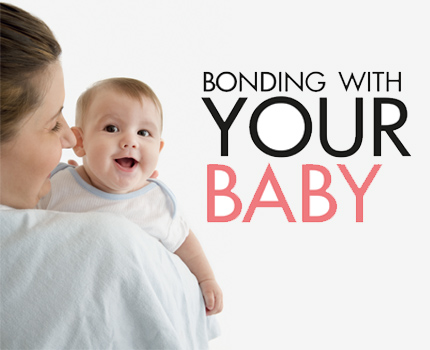 Most of us assume that bonding with our newborn baby is natural and instinctive. However, as health discovers, some women are not bonding with their babies Immediately…
Most of us assume that bonding with our newborn baby is natural and instinctive. However, as health discovers, some women are not bonding with their babies Immediately…
What It Means
Bonding is defined as the intense attachment that develops between parents and their baby. It makes parents want to shower their baby with love and affection and to protect and nourish their little one. It’s a two-way process between a baby and its parents that sets the scene for future parenting. The early weeks of a baby’s life are crucial for the parents and baby to get to know one another – parents need to touch and explore their baby.
The Start
Bonding or attachment between a mother and her baby begins during pregnancy when the parent imagines what the baby will look like and continues through birth and the first few days of a baby’s life. A parent observes, listens, and works out what the baby needs and responds accordingly. The baby is programmed for this social interaction from birth but requires time to be given to enable the process. It’s soothing
for both you and your baby while promoting your baby’s healthy growth and development. Eye-to eye contact provides meaningful
communication at close range. Babies can follow moving objects with their eyes. Your baby tries – early on – to imitate your facial expressions and gestures. Babies prefer human voices and enjoy vocalizing in their first efforts at communication.
The Importance
Bonding is essential for a baby. Studies of newborn monkeys who were given mannequin mothers at birth showed that, despite the efforts of the baby monkeys to get a response through holding and touching the mannequins, the lack of a parental response caused stunted development, sadness, and failure to thrive in the young monkeys. Scientists suspect that lack of bonding in human babies causes similar problems.
Why Some Parents Don’t Bond Right Away
- Most babies are ready to bond immediately after birth. This is not always possible, however.
- If a baby is sick and needs immediate care, she may need to be taken away from parents to receive medical attention in a different room.
- Often parents are exhausted after delivery and need time to rest before they are ready to bond.
- A complicated birth can delay bonding.
- If your baby has health problems or a birth defect (especially facial), bonding may be delayed. This is normal. It often takes parents some time to adjust to unexpected conditions.
- It’s easier to bond with your newborn if you have the support of family and friends. It’s okay to ask others for help so that you can take a break from time to time. You’ll be able to take better care of your child if you take good care of yourself, too.
Tips to Help with Bonding
- Establish eye contact as this is one of the most powerful communication systems. Babies can recognize their own mothers face four hours after birth.
- Encourage skin-to-skin contact – touch is a powerful element in human bonding.
- Learning how to massage the baby is a most powerful tool in helping a parent to establish a bond.
- If possible, rest your baby on your stomach. He/she will enjoy the feel of your skin and will look up at you from time to time.
- Both breastfeeding and bottle-feeding are bonding activities.
- Read and sing to your baby.
- Rock your baby to sleep.
- Let your baby touch you on your face, hair, and hands. The different shapes and textures will interest her.
- You don’t have to set aside special time for bonding. For example, use diaper changes or feeding time to do these activities.

